Public Disorder Series Review (ACAB): Netflix Series That Improves Almost Every Aspect of the Film
Thirteen years later we return to the world of Public Disorder (ACAB). The TV series, available on Netflix from 15 January 2025, transports us again to the microcosm of the Mobile Team of Rome in Mazinga, to the century Ivano Valenti – always interpreted by Marco Giallini. Based on the novel of the same name by Carlo Bonini (here as creator and co-writer), Public Disorder (ACAB) tells the personal and professional stories of a group from the Mobile Department of Rome. Complex and conflict-filled characters, as also explained by the cast in a press conference for the presentation of the TV series. History takes hold as in a recent news event. On a night of fierce clashes in Val di Susa, a team from the Rome Mobile Department remains an orphan of its leader, who is seriously injured. From that moment an ordeal begins for the group of men of Valenti, who not only will have to deal with a new commander but will find themselves managing the consequences of that brutal night. A dynamic that will not only affect fieldwork but also in personal life.
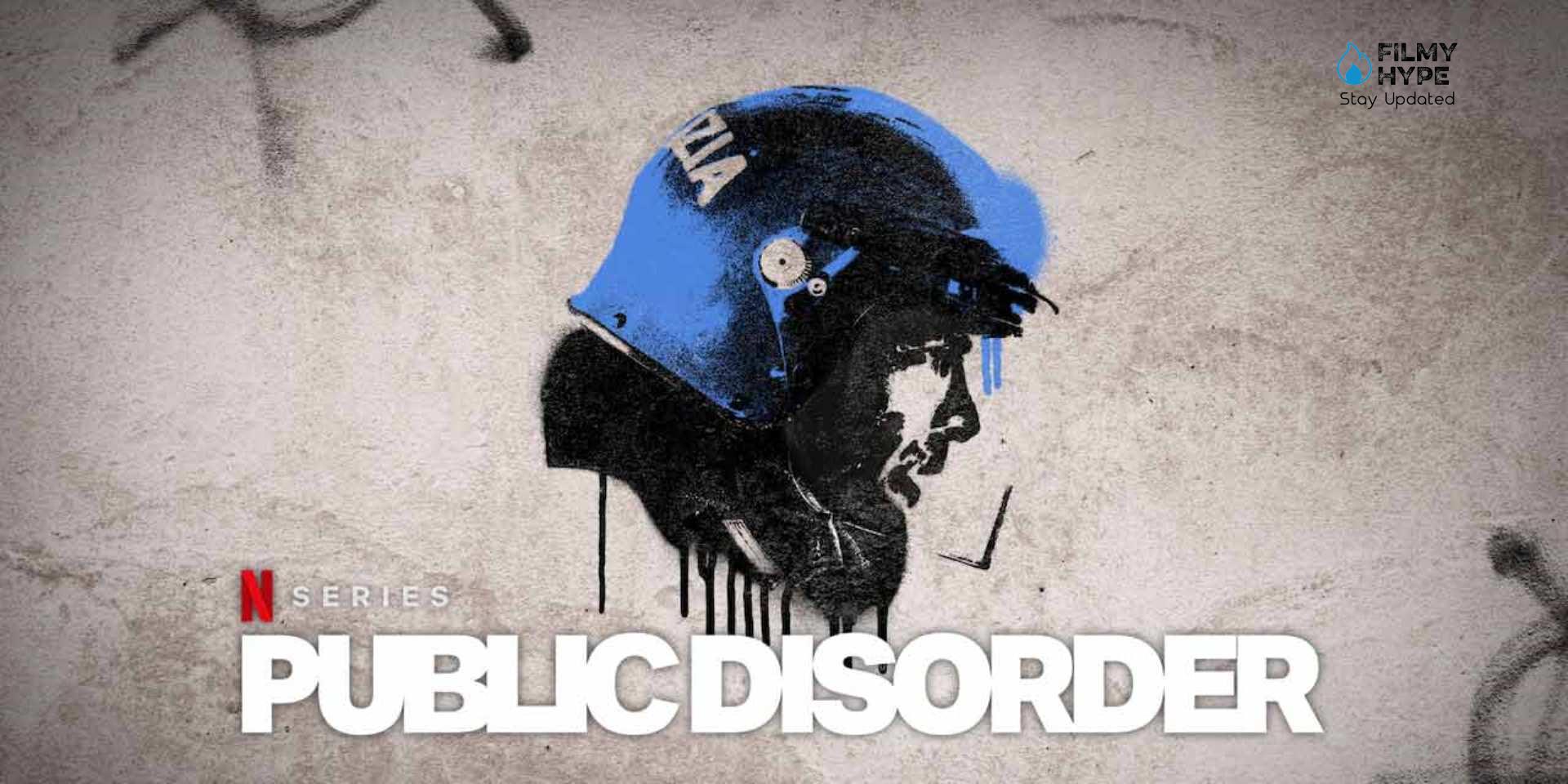
“What is the boundary between legal and illegal violence?” This is the central question that Public Disorder (ACAB), the new Netflix series inspired by Carlo Bonini’s novel, strongly poses. Through six episodes directed by Michele Alhaique, the show is immersed in the dynamics of a group of celerini, agents of the Rome mobile team, and professional figures who constantly operate on the limit between duty and morals, between law and chaos. Set in part in a Rome that becomes a symbol of urban and social conflicts, Public Disorder (ACAB) explores a world where violence is not only an occasional event but an intrinsic element of everyday life. The series does not just represent physical clashes, but deepens the inner tensions of those who wear a uniform, wondering about the human price of an extremely difficult job.
Public Disorder Series Review (ACAB): The Story Plot
“Public Disorder (ACAB)” was born from the desire to continue what had begun with that symbolic film of Italy still marked by the shame of Genoa 2001. Stefano Sollima is the executive producer, the direction is by Michele Alhaique, and among the screenwriters, there is also Carlo Bonino, who signed the original novel, considered a masterpiece of the genre. And so here we are once again among the departments of the cellar, where we find some of those characters that the film made become the symbol of that thin line that separates public order from subversion. Marco Giallini’s Mazinga reappears, always on the front line, with a team to guide between smoke bombs and shouts. This time they have to see it in Turin with the No Tav movement, on a dark and violent night, which will change the lives of many of them. Fate will cross Mazinga’s steps with those of Michele (Adriano Giannini) who has earned the name of one too soft, naive, and not very energetic to command those who have to deal with the worst street humanity. Or not? It will be precisely the comparison between these two concepts of uniformity that will hold the bench from the beginning.
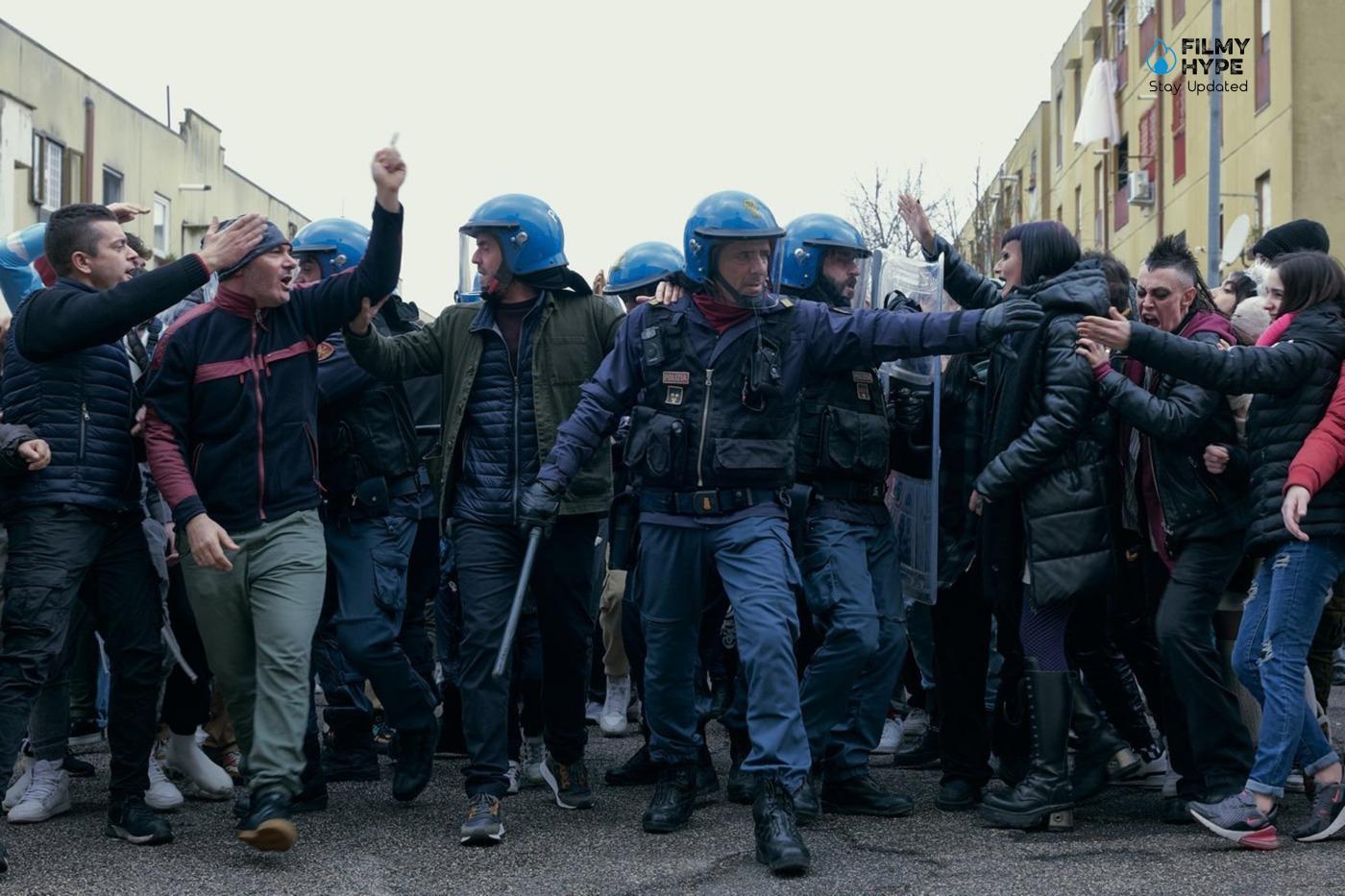
“Public Disorder (ACAB)” already in these episodes becomes the force of a dynamic, robust direction, manages to drag you into that crowd of bodies, shields, batons, and sweat, and makes you breathe the tension and fear of those who have to deal with violence all day. In constant movement between Turin and the capital, “Public Disorder (ACAB)” roughly follows the diegetic structure of the 2012 film, in proposing a traumatic event, far beyond the limits of legality and the inevitable contrast that will arise when the different souls of the Forces of the Order will reveal themselves. Italy has changed, as told us in the series, the very conception of man in uniform has changed, but certain things have remained the same. It would be enough to open a newspaper of the last few weeks to find many episodes, often tragic, from which what Bonino had already tried to make us understand in his book: as an arm of executive power, law enforcement officers always walk on a precarious balance, where respect for the law can become arrogance within a moment. This is also the main theme of this series, produced by Cattleya, although in the first two episodes perhaps that extra ingredient is missing.
Public Disorder Review (ACAB) and Analysis
Public Disorder (ACAB) stages a narration independent of the original film, where the only link is represented by the character of Mazinga, the only one to return. An older and more experienced Mazinga, a natural leader and landmark for his younger colleagues. But also more and more disillusioned and tired of that life, moreover the main cause behind the loss of the relationship with his son, who has not spoken to him for some time. Alongside the veteran Giallini, an unprecedented group of characters, very different from each other and afflicted by the most disparate problems of a personal nature, will add to the working tensions. Present, for the first time, the figure of a “celerina” female, Marta (Valentina Bellè), a single mother who refuses to leave her daughter to her ex-husband, given her past as a violent alcoholic. There is Nobili (Adriano Giannini), a new foreman recently transferred from Senigallia, despised by other agents for having testified in the courtroom against the abuses of some colleagues. A character with a spirit certainly more moderate than his companions, but the Roman environment, combined with some serious family problems, definitely risks breaking.
This new incarnation of Public Disorder (ACAB), perhaps even more than the film of the same name, tries to humanize its ambiguous protagonists, also thanks to the more full-bodied duration of the serial format, which offers the opportunity to spend more time with them, deepening in detail their experience and their psychologies (Salvatore, convincingly interpreted by Giant Pierluigi, with his immaturity and emotional vulnerability, almost as a teenager). The violent and silent riot police are often presented as cogs in the system, forced to carry out uncomfortable tasks, and considered by themselves to be unjust (the eviction of citizens, even elderly ones, who are protesting the reopening of a landfill). But the series succeeds in the difficult balance of humanizing these characters without ever absolving them of the abuses and crimes they find themselves committing, which is not at all simple.
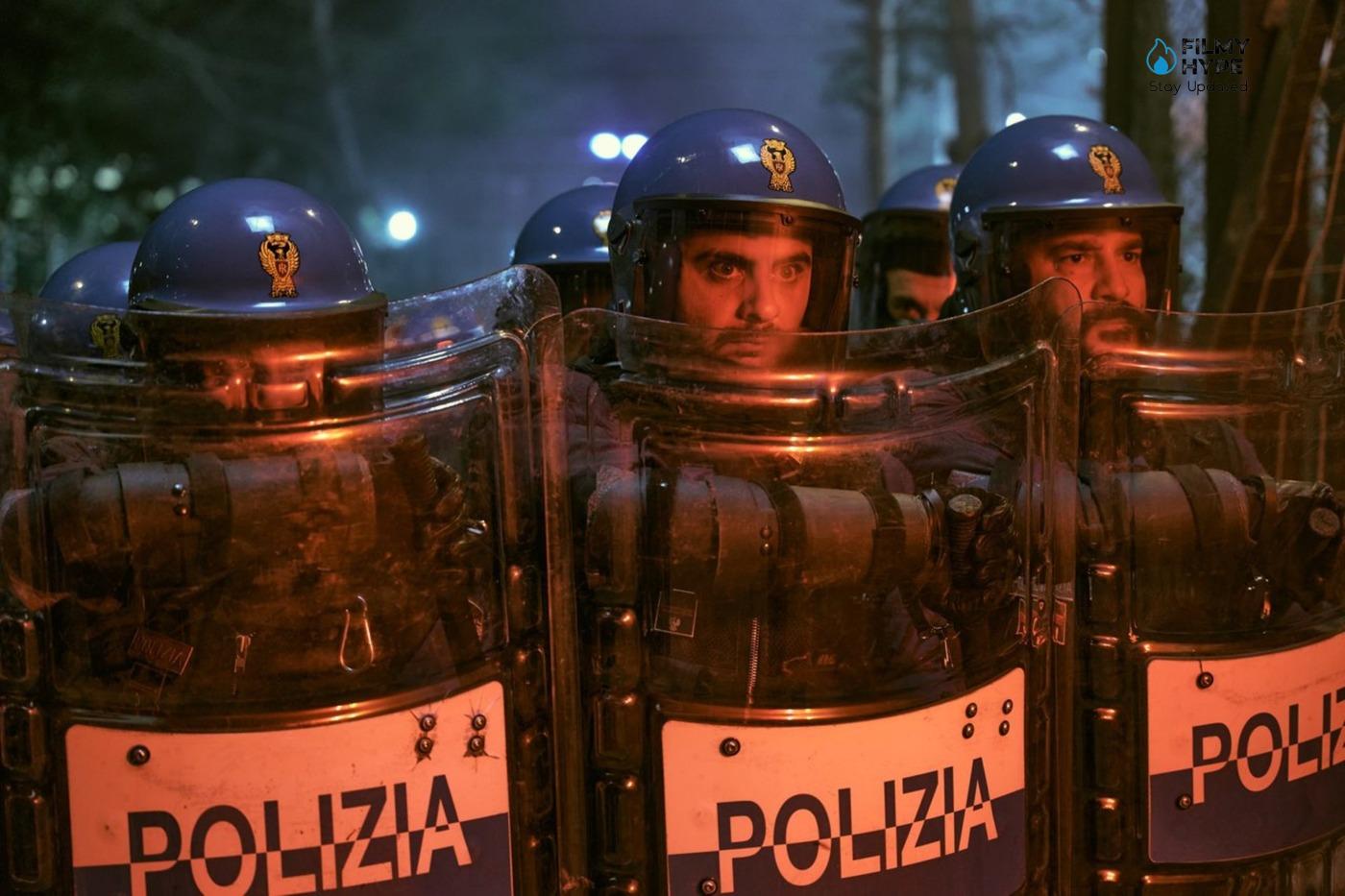
Alhaique’s direction, then, is effective in building the upright tension of actions on the field, where often irrepressible chaos breaks out (as Mazinga will find himself saying, “is like war”). All set mostly in Rome, certainly, not a postcard, that of the gray and degraded suburbs, photographed with dark tones, where the ocher and the cold greenish of the neon dominate. A high-level package, which many would define as international, with a soundtrack that alternates local artists, such as Vasco Rossi, with pieces sung in English. Public Disorder (ACAB) not only is one of the best original Italian Netflix productions, but it also manages to overcome the original film directed by Sollima, improving almost every aspect.
“Public Disorder (ACAB)” can claim a perfectly assorted cast, which in addition to Giallini and Giannini, includes Valentina Bellé, Pierluigi Gigante, and Fabrizio Nardi, but in the end perhaps some predictability emerges in the characterization of their characters and their respective lives. Marco Giallini, an increasingly hoarse voice, is certainly functional and credible, even if for years it seems that he has been interpreting the same character for good or bad. Adriano Giannini instead, after “Adagio”, returns in the role of a character in an interesting uniform, here a little more tied to the concept of the anti-hero bearer of a different vision of the law and its application. “Ahab” for the rest perhaps has too much faith in characters cut with a hatchet, however effective. The divorced agent with a difficult motherhood to deal with, the adrenaline-fueled exalted faithful to the climate of silence and violence, the most doubtful one who is afraid of losing his job, the old commander who clings to memories and his anger. However, “Ahab” does not lack consistency, the will for realism that goes beyond images and embraces the very identity of a narrative that does not make the mistake of judging its characters above all the mistake of judging his characters.
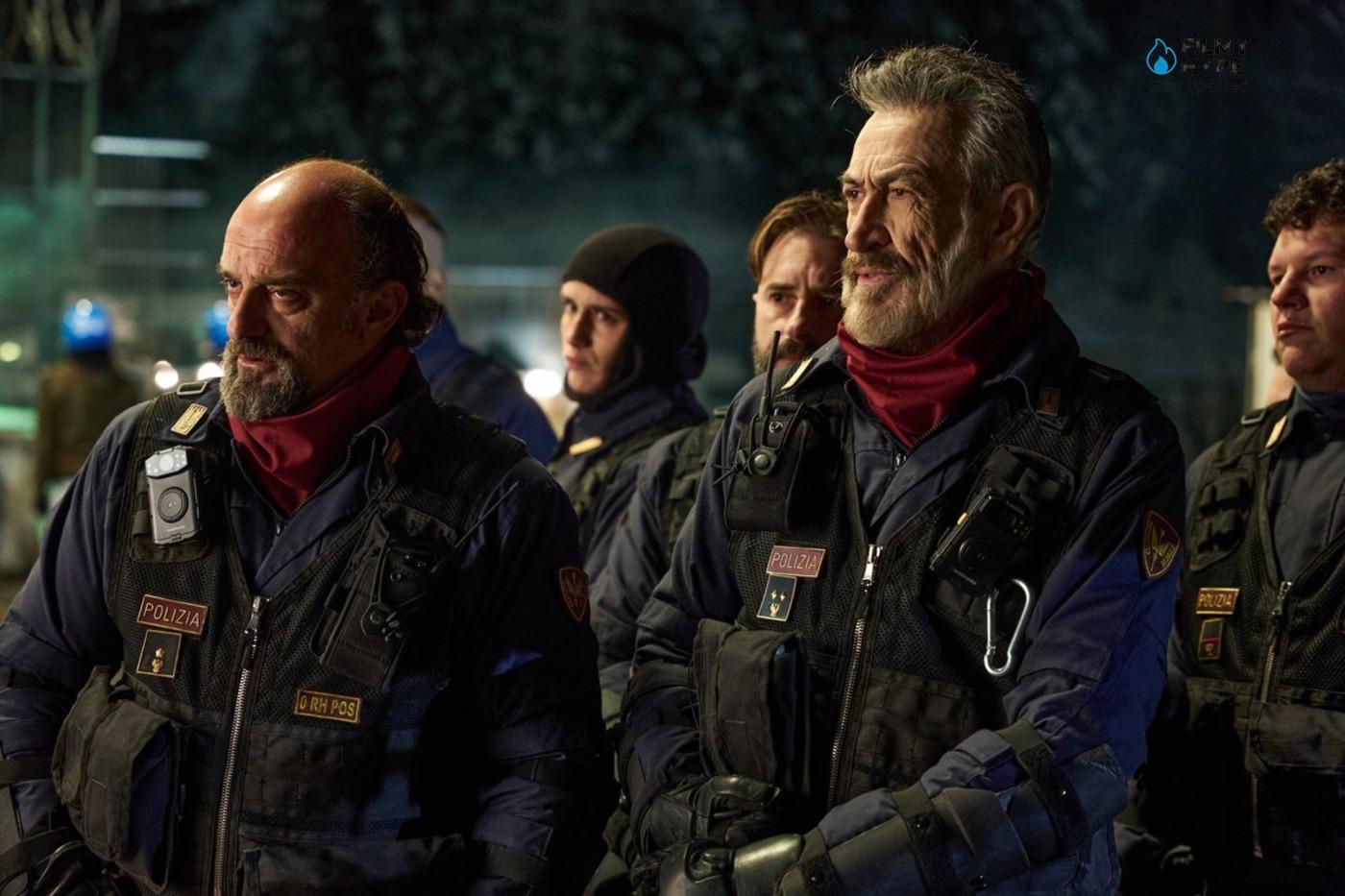
However, the series is as if there is no casus belli or a truly radical narrative turn, which remains in the shadows and does not reveal itself or perhaps does not exist. The whole appears at times conditioned by an excess of linearity, although there are strong images, a clear vocation from civil cinema, the desire to illuminate us on a particular world, far from the reality of normal society, in which the echoes still echo today of a denial of the concept of democracy. “Public Disorder (ACAB)“, however, has all the credentials to be an interesting and vibrant series, but it remains to be understood how much writing will be able to live up to its potential, and how much instead it will have to lean on the action scenes to maintain interest. All that remains is to wait for the other episodes, there will certainly be controversy, the same that for almost twenty-five years has affected law enforcement, their conception in this Italy where citizens do not yet want to be guaranteed security towards those who should protect them and often do not, their always reaching out to the far right that it is and remains a problem of primary importance for qualifying the essence of our democracy.
The plot develops between breathtaking action sequences and moments of introspection, which lay bare the fragility of the protagonists. The opening episode, with the clashes in Val di Susa, immediately sets the tone: raw, visceral, but also deeply human. Violence becomes the language through which characters express their disorientation in a world that seems to escape control. However, Public Disorder (ACAB) does not stop at the representation of external events: it delves into the psychology of the protagonists, showing how the profession of celerino is a daily struggle against its demons, as well as against the turmoil of society. The series is adept at mixing reality and fiction, addressing current issues such as the relationship between the state and the citizen, the sense of duty, and the responsibilities of the institutions. Michele Alhaique’s direction is distinguished by the skillful use of the camera, which alternates intense close-ups with action scenes with a cinematographic breath. Each shot is designed to convey the sense of claustrophobia and isolation that the protagonists live in, both in the field and their private lives.
The rhythm of the narration is supported by the Mokadelic soundtrack, which amplifies the tension and adds a layer of drama. The most spectacular sequences, such as the opening in war film style, merge with more intimate moments, creating a balance between show and reflection. In addition to the representation of external violence, Public Disorder (ACAB) sensibly explores the internal conflicts of its protagonists. The uniform becomes a mask that hides emotions and fragility, transforming celerini into instruments at the service of an often unfair system. However, behind the riot shields and batons, some individuals struggle to maintain a personal balance. The series addresses issues such as alienation, the loss of humanity, and the difficulty of reconciling work with an almost non-existent private life. This deepening makes the characters closer to the viewer, who can empathize with their struggles and contradictions. Public Disorder (ACAB) doesn’t just tell the story of a group of riot agents but uses their history to reflect on broader issues, such as social inequalities, the role of law enforcement, and political tensions.
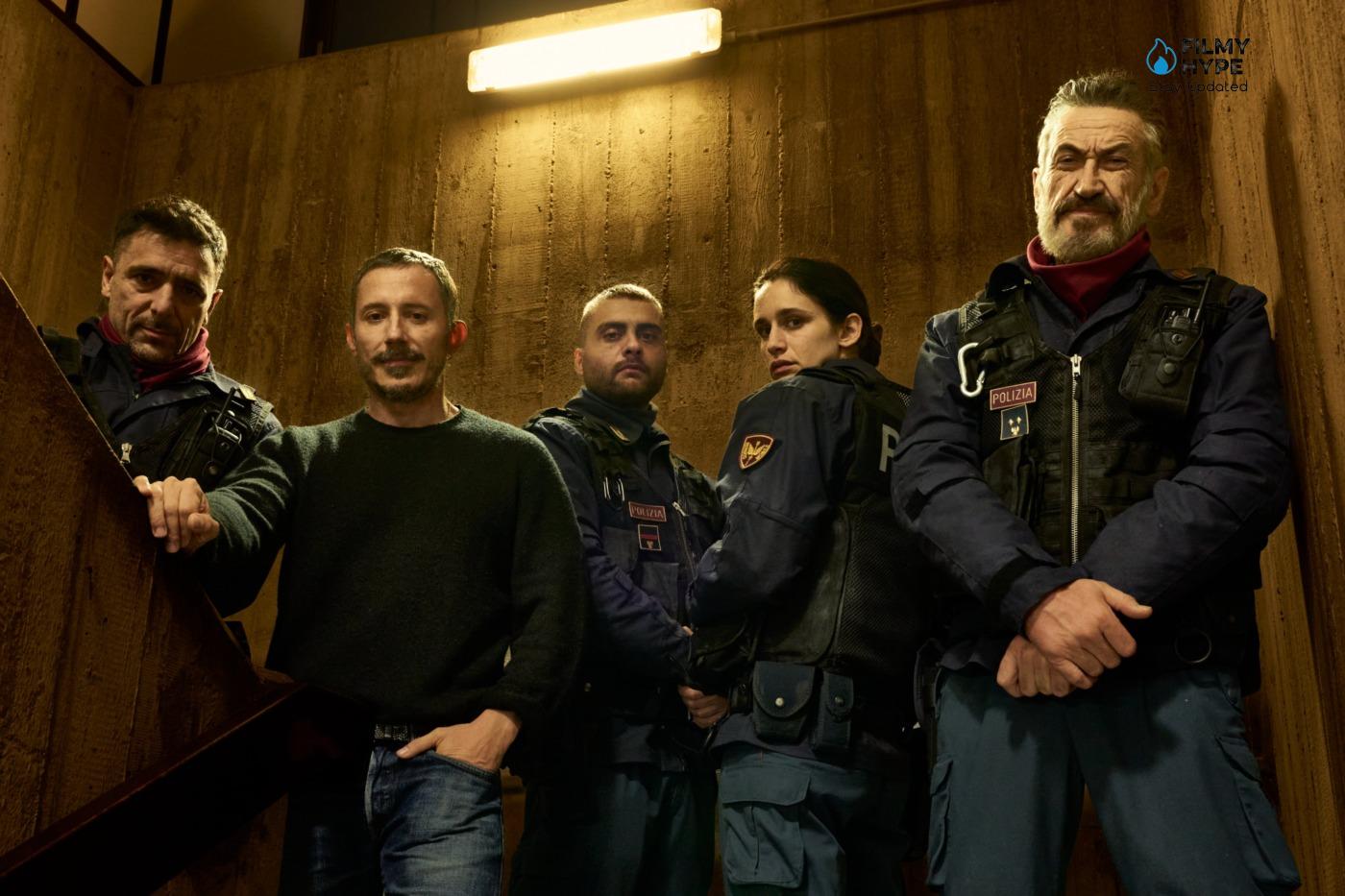
The series does not take a clear position but invites the viewer to ask questions, underlining the ambiguities of a system in which violence seems to be the only answer to complex problems. The intertwining of thrillers and social drama makes Public Disorder (ACAB) a courageous product, capable of going beyond such clichés to offer a cross-section of contemporary society. The antagonists – as they are called today – are the usual suspects who with pretentious apologies launch themselves against the police to feed a social tension climateis. In the series just like in reality. Inserting a reflection on this point would have raised the level of the discussion, inserted new ideas, and deleted a one-dimensional script. Instead, only gods raise it, great actors. Above all Bellè, Giallini and Giannini. They deserve a vision, with a warning: take some breaks. Your eyes will thank you.
Public Disorder Review (ACAB): The Last Words
Public Disorder (ACAB) is an intense and ambitious series that explores the human and professional side of those who work at the forefront of social conflicts. With a high-level cast, effective direction, and a narration that alternates action and introspection, the series invites the viewer to reflect on complex issues such as violence, morality, and the relationship between the state and the citizen. Available on Netflix from January 15, 2025, PUBLIC DISORDER (ACAB) is a visual and emotional experience that does not leave you indifferent. Public Disorder (ACAB) takes us back to the violent world of celerini the homonymous film directed by Stefano Sollima. While the Roman author returns as executive producer, the direction passes to Michele Alhaique, who skillfully manages to make on-screen the growing tension of the actions in the field of agents. A story independent of the facts narrated in the original film, which is only constantly in the presence of the character of Mazinga, always interpreted by Marco Giallini. Six episodes where work anxieties and suspicions intertwine with personal and family problems, in an increasingly distressing crescendo. The series manages to improve almost every aspect of the film, especially as regards the deepening of the psychologies of its large cast of protagonists, getting the most out of the full-bodied duration of the serial format.
Cast: Marco Giallini, Adriano Giannini, Valentina Bellè, Pierluigi Gigante, Fabrizio Nardi
Director: Michele Alhaique
Streaming Platform: Netflix
Filmyhype.com Ratings: 3.5/5 (three and a half stars)






